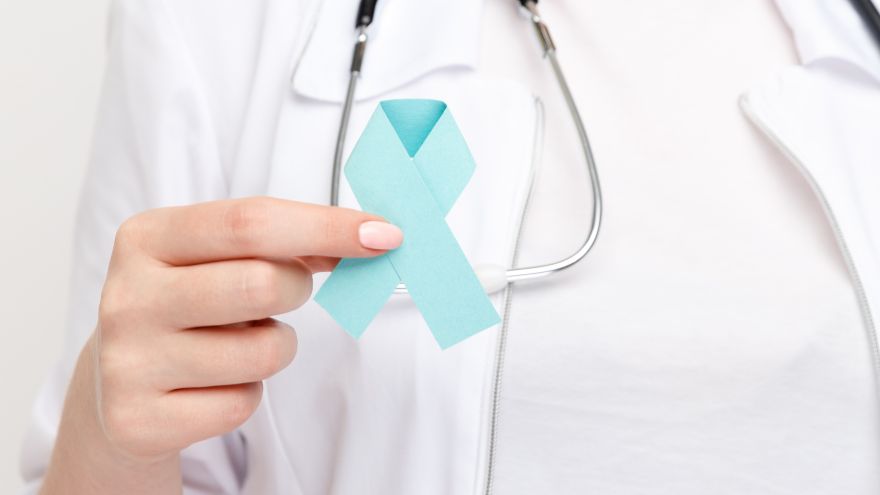Buscar
-
Life after Lymphedema Diagnosis: ¿Qué esperar?
Managing lymphedema effectively is essential for enhancing the quality of life for individuals affected by this condition. Katherine Bunker, a Physical Therapist and Certified Lymphedema Therapist (PT, DPT, CLT) at Renown, has expertise in this area and her insights offer valuable strategies for managing lymphedema. Lymphedema is a chronic condition characterized by swelling in one or more limbs due to a blockage in the lymphatic system. This condition can result from cancer treatments, surgery, infection, or can sometimes be congenital. While it can be challenging to live with lymphedema, understanding the condition and adopting specific lifestyle changes and strategies can significantly improve the quality of life. Understanding Lymphedema Educating yourself about lymphedema is crucial. Understanding the causes, symptoms, and potential complications can provide you with the tools to manage the condition proactively. Lymphedema can lead to discomfort, decreased mobility, and in severe cases, infections such as cellulitis. Therefore, recognizing the early signs and knowing when to seek medical advice is essential. Medical Management Consulting with healthcare professionals who specialize in lymphedema is critical. A physiotherapist or occupational therapist trained in lymphedema management can tailor a treatment plan for you that can include the following: Compression Therapy - Wearing prescribed compression garments can help move the lymph fluid and reduce swelling. It’s essential to get fitted by a professional and understand how to use these garments correctly. Manual Lymphatic Drainage (MLD) a gentle massage technique that encourages the movement of lymph fluid out of the affected limb. It’s typically performed by a trained therapist but ask about self-massage techniques you can do at home.
Read More About Life after Lymphedema Diagnosis: What to Expect
-
Learn How to Manage Lymphedema
Katherine Bunker, Physical Therapist and Certified Lymphedema Therapist (PT, DPT, CLT) at Renown, discusses how patients can manage lymphedema with changes to daily routines along with diet and exercise. Lymphedema is a condition that affects millions of people around the world. It is a chronic and progressive disorder that results in swelling of the arms, legs, or other parts of the body due to an accumulation of lymph fluid. Lymphedema can occur because of cancer treatments, surgery, or other medical conditions. Managing Lymphedema Treatments to help reduce symptoms such as pain, swelling and discomfort associated with lymphedema can include compression garments, exercise, skin care, manual lymphatic drainage and pneumatic compression. The goal is to avoid triggering the onset of lymphedema. Lymphedema can present itself immediately after surgery or radiation. It can appear months later or even years later. There are many factors that influence the development of lymphedema which is why prevention is so important. If you have had injury or disruption to your lymphatic system, then: Avoid injuries to the skin near the affected area. For example: wearing gloves during gardening, using bug spray to ward off mosquitos, covering your limbs while playing with pets, keeping nails clean and avoiding cutting too close to cuticle, utilizing electric razors at the armpit (instead of a traditional razor)., Avoid blood pressure readings to the affected limb or request blood pressure to be taken manually, not by a machine. Avoid heat like saunas, hot tubs, sunburns, hot packs, and even massages. Avoid tight jewelry like rings or bracelets, which can be too tight.
-
Departamento destacado: Acute Care Rehab Therapy
Being admitted to the hospital is never easy. Being admitted for a traumatic injury can be even harder. Whether it's learning how to walk again or powering through a new speech therapy routine, recovering from an injury that may affect the course of your life can be daunting. But it doesn’t have to be, thanks to the Acute Care Rehab Therapy team at Renown Health. The smiling faces of the Acute Care Rehab Therapy team at both Renown Regional Medical Center and Renown South Meadows Medical Center will make you see that there is a light at the end of the tunnel. Your dedicated physical therapists, occupational therapists and speech language pathologists are here to serve you and place you back on the right path to recovery and function. The Role of Acute Inpatient Therapy The Acute Care Rehab Therapy team comes in at a critical juncture in a patient’s care process after hospital admission. As one of the primary rehabilitation partners on a care team, these dedicated therapists are here to maximize every patient’s safe and independent living before they set off back home – all while reducing the risk of hospital readmission. “As physical therapists, we address musculoskeletal deficits and assess a patient’s current function after acute injury or illness from their baseline and develop a plan for functional recovery,” said Kristie Eide-Hughes, Physical Therapist at Renown Regional. “We also use our clinical expertise to assist with the discharge process and make sure each patient has the best durable medical equipment the first time around, removing the guesswork.” “On the occupational therapy side, we work with patients to facilitate their independence with basic life skills, such as dressing, bathing and using the restroom,” added Jeanne Clinesmith, Occupational Therapist at Renown Regional. “In the pediatric setting, we help babies and kids get back to what they were doing before they came into the hospital,” continued Rhonda Yeager, Pediatric Occupational Therapist at Renown Regional. “In the NICU specifically, we support the development of babies, trying to prevent problems from worsening. It’s nice to be a source of positivity in an otherwise intimidating situation.” The role of therapy in this setting reaches all ages, from babies in the neonatal intensive care unit (NICU) to adults approaching end-of-life care. Every therapeutic approach is tailored specifically to each patient. “Therapy is more of a habilitative approach for infants in the NICU, while it is more of a rehabilitative approach for kids and adults following injury or illness,” said Sara Carolla, Physical Therapist at Renown Regional. Each team member in the Acute Care Rehab Therapy department is dedicated to each patient, helping them make progress from start to finish and giving them the tools to succeed along the way. “I enjoy the variety of the patients we get to see and the ability to see them make gains from the wonderful treatment they get in the hospital from my team,” said Kelly Schwarz, Occupational Therapist at Renown South Meadows. “We provide education as each patient’s acute issues evolve,” added Nicole Leeton, Speech Language Pathologist at Renown Regional. “One of my favorite parts of my work is the patient and family education aspect, and that includes other healthcare provider education as well. It’s a moving picture.” Moreover, every team member gives each patient tools to learn how to be themselves again and empowers them to continue striving for the best possible result of their therapy “We get the opportunity to make a person’s bad experience in life better even by spending one session with them, giving them the keys to unlock something that they didn’t think they had the ability to do,” said Dana Robinson, Occupational Therapist at Renown Regional. On the Road to Independence Our dedicated therapists in the Acute Care Rehab Therapy team set the stage for a patient’s recovery process after trauma, showing them their potential for independence. With a multitude of patients coming into the hospital with many degrees of medical complexity, each day is different while the end goal is always the same: to optimize function as early as possible while overcoming any barriers and paving the way for a comfortable and effective quality of life. “Early intervention is a big piece,” said Nicole Leeton. “Us seeing patients early can get them recovered and independent more quickly and help prevent future illness and injuries. For example, in speech therapy, getting in early and facilitating communication skills for patients with impaired speech can make a huge difference.” Acute Care Rehab therapists dig deeply to see the whole picture of each patient’s situation to foster their independence – their history, social skills, support system and more. “Sometimes, we are the difference between independence and dependence,” said Dana Robinson. “We are the eyes and ears because we have so much time with the patients. Our team is extremely collaborative and develops a great rapport with patients, so they feel comfortable telling us everything going on with them.” “For kids, we teach parents ways they can help their kids by setting up their homes and the equipment they need to succeed,” added Rhonda Yeager. According to the team, one of the biggest keys to independence is repetition. A continual flow of getting up and trying again is crucial for recovery. “Repetition helps people regain their quality of life back sooner and control their recovery process,” said Megan Hough, Physical Therapist at Renown Health. “Helping people continue to get stronger and more independent makes my job so rewarding,” added Sam Brown, Physical Therapist at Renown Regional. Knowing that they have made a difference and help shape a patient’s overall development inspires each therapist to never give up, regardless of how difficult an injury presents. There is no set schedule for recovery, and the therapists are always in the patient’s corner. “This team has the most passionate, caring and dedicated individuals that I know,” said Kendra Webber, Manager of Acute Inpatient Rehab Therapy Services at Renown Regional. They give 110 percent to every patient every time to ensure they have what they need to regain function and independence.” “By tailoring therapy to the individual, the bounds are virtually limitless for what we can accomplish,” added Dana Robinson. It Takes a Village Since acute inpatient therapy is never a one-size-fits-all approach, it truly takes a village for this team to move the mountains they do for patients every day. These teams are fact-finding masters, gathering all the necessary information from the patient, their family and their care team to figure out their precise needs. “We are a consistent presence for our patients, identifying a lot of different needs and meeting those needs to help patients grow in their treatment process,” said Kelly Schwarz. “By collaborating with each patient’s diverse care team, we are able to employ the clinical judgment to help patients overcome physical, emotional and environmental struggles and set them up with the proper resources once they leave our setting.” “Our team has steady communication with physicians, nurses, acute care technicians, respiratory staff, physician assistants, case managers and more to ensure the best possible care,” added Jet Manzi, Physical Therapist at Renown Regional. Constant communication and collaboration are also necessary beyond the acute treatment process. These skills are vital in order to facilitate discharge planning, and the Acute Care Rehab therapists are an essential resource in the discharge process alongside our Hospital Care Management team. “Often times, a patient’s family needs a lot of guidance in helping their loved ones determine the next level, and we help them navigate those steps and the resources available to them,” said Mark Stumpf, Occupational Therapist at Renown Regional. “And it’s all a team effort.” “Our therapists are the most committed, generous, hardworking people,” added Courtney Phillips-Shoda, Supervisor of Rehab Therapy Services at Renown Regional. “Despite being short-staffed, we come to work every single day and give everything to our patients. They are the priority.” If you take away one thing, know this for certain: Renown’s Acute Care Rehab occupational, speech and physical therapists will always be there to help patients continue on a positive trajectory to physical, mental and emotional recovery. “Whether you are a patient or a provider, if there is a problem, never hesitate to reach out to us,” said Nicole Leeton. “We are always receptive to anyone seeking our help.” With the Acute Care Inpatient Therapy team on their side, a patient’s journey to recovery is only just beginning.
Read More About Department Spotlight: Acute Care Rehab Therapy


